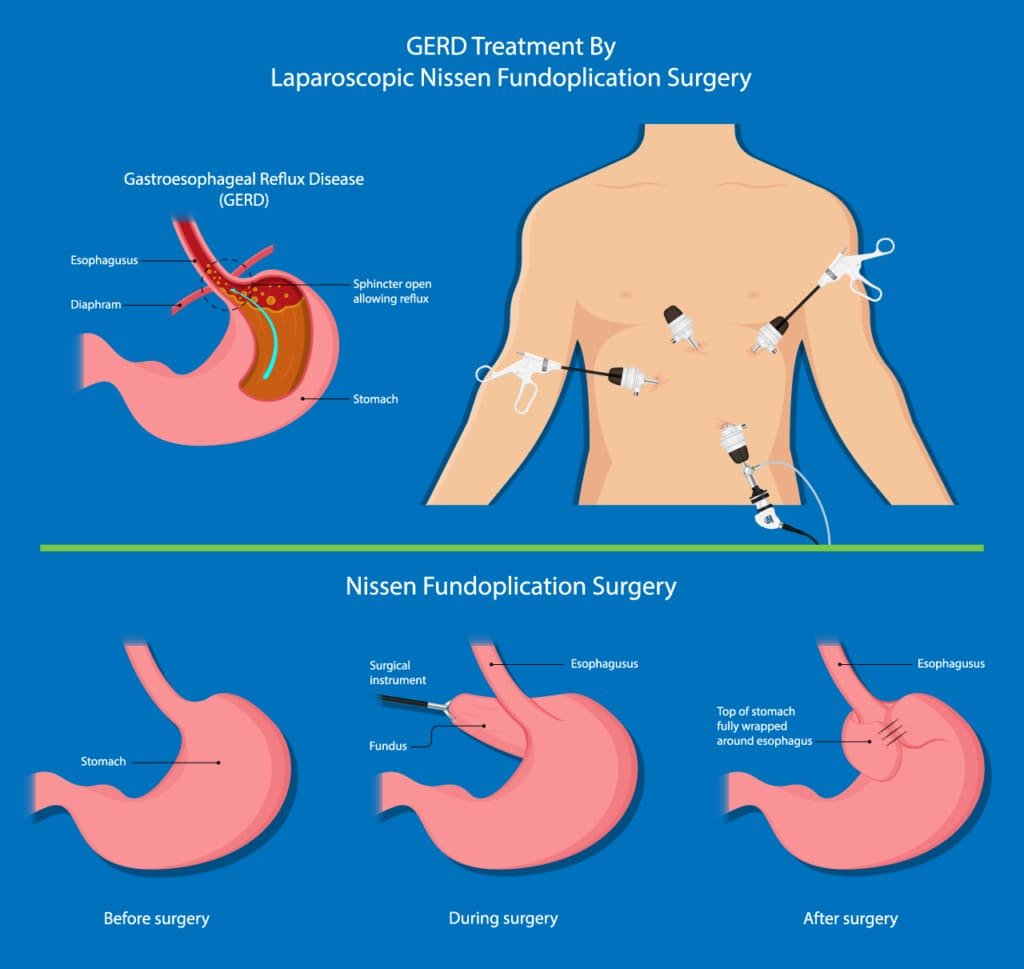Gastroesophageal reflux disease, commonly referred to as GERD, is a chronic digestive disorder that affects millions of people worldwide. It occurs when the stomach acid and contents flow back into the esophagus, causing irritation and discomfort. This condition can have a significant impact on an individual’s quality of life, but with proper understanding and management, it is possible to live well with GERD. In this article, we will explore the causes, symptoms, and treatment options for GERD.
Causes of GERD:
GERD occurs when the lower esophageal sphincter (LES), the muscle that acts as a valve between the esophagus and stomach, weakens or relaxes inappropriately. This allows stomach acid to flow back into the esophagus, leading to irritation and inflammation. There are several factors that can contribute to the development of GERD, including:
- Hiatal hernia: A condition where a portion of the stomach protrudes through the diaphragm into the chest cavity, weakening the LES.
- Diet and lifestyle: Consuming large meals, fatty and spicy foods, caffeine, alcohol, and smoking can all increase the risk of developing GERD.
- Obesity: Excess weight puts pressure on the abdomen, which can cause the LES to weaken.
- Pregnancy: Hormonal changes and increased pressure on the abdomen during pregnancy can lead to GERD symptoms.
Symptoms of GERD:
The most common symptom of GERD is heartburn, a burning sensation in the chest or throat. However, GERD can also present with other symptoms, such as:
- Regurgitation: A sour or bitter taste in the mouth, accompanied by the sensation of stomach contents coming back up into the throat.
- Difficulty swallowing: A feeling of food getting stuck in the throat or chest.
- Chronic cough: A persistent dry cough, often worse at night or after meals.
- Sore throat and hoarseness: Irritation and inflammation of the throat caused by acid reflux.
It is important to note that not everyone with GERD experiences all of these symptoms. Some individuals may only have a few symptoms, while others may have more severe manifestations.
Treatment options for GERD:
Managing GERD typically involves a combination of lifestyle modifications, medication, and in some cases, surgical intervention. Here are some common treatment options:
- Lifestyle modifications: Making certain changes to your diet and habits can help alleviate GERD symptoms. These include avoiding trigger foods, eating smaller meals, maintaining a healthy weight, quitting smoking, and elevating the head of the bed while sleeping.
- Medications: Over-the-counter antacids, such as Tums or Rolaids, can provide temporary relief by neutralizing stomach acid. However, for more persistent symptoms, your doctor may prescribe medications like proton pump inhibitors (PPIs) or H2 blockers. These medications help reduce the production of stomach acid and promote healing of the esophagus.
- Surgical intervention: In cases where lifestyle modifications and medications are not effective, or if there are complications like narrowing of the esophagus (strictures) or Barrett’s esophagus (a precancerous condition), surgery may be recommended. Procedures such as fundoplication can strengthen the LES and prevent acid reflux.
It is important to consult with a healthcare professional if you suspect you have GERD, as they can provide an accurate diagnosis and develop a personalized treatment plan based on your specific needs.
Living well with GERD:
While GERD is a chronic condition, it is possible to manage symptoms and live a comfortable life. Along with following the recommended treatment plan, here are some additional tips for living well with GERD:
- Eat slowly and chew food thoroughly to aid digestion.
- Avoid lying down immediately after meals to prevent acid reflux.
- Wear loose-fitting clothing to avoid putting pressure on the abdomen.
- Manage stress levels, as stress can exacerbate GERD symptoms.
- Keep a food diary to identify trigger foods and avoid them.
In conclusion, gastroesophageal reflux disease (GERD) is a chronic condition that can cause discomfort and impact daily life. However, with proper understanding, lifestyle modifications, and medical treatment, individuals with GERD can effectively manage their symptoms. If you suspect you have GERD or are experiencing persistent acid reflux symptoms, consult with a healthcare professional for an accurate diagnosis and appropriate treatment plan.

